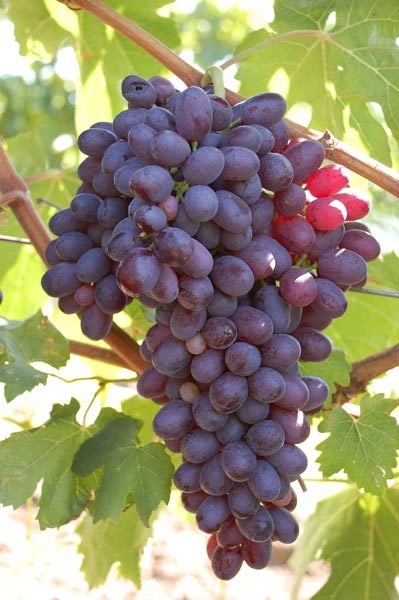Introduction:
Grapes, small and round fruits that grow in clusters, have been treasured for millennia. From ancient civilizations to contemporary society, grapes have significantly influenced culture, health, and agriculture. This article explores the rich history, nutritional benefits, cultivation techniques, and cultural importance of grapes.
Our Story:
Grapes boast a rich history spanning approximately 8,000 years, originating in the Near East. The earliest signs of grape cultivation were discovered in present-day Georgia, where ancient communities started domesticating wild grapes. These fruits soon proliferated across Europe, Asia, and North Africa, becoming integral to the diets of many ancient civilizations, such as the Egyptians, Greeks, and Romans.
The Greeks and Romans held grapes in high esteem, primarily for their role in wine production. Wine symbolized civilization, religious rituals, and social events. As the Roman Empire expanded, grape cultivation spread across Europe, leading to the establishment of vineyards in present-day Italy, France, Spain, and beyond.
Health Benefits of Nutrition:
Grapes are not just tasty; they’re also nutrient-rich. They provide an excellent source of vitamins C and K, along with various antioxidants like resveratrol, known for its numerous health benefits. Key nutritional advantages of grapes include:
Packed with Antioxidants: Grapes are brimming with potent antioxidants that shield cells from free radical damage, lowering the risk of chronic illnesses.
Heart Health: Resveratrol found in grapes is renowned for its heart-protective benefits, aiding in the reduction of blood pressure, decreasing inflammation, and preventing heart disease.
Anti-Aging: Rich in antioxidants, grapes can aid in slowing the aging process, promoting healthy and youthful skin.
Digestive Health: Rich in dietary fiber, grapes support digestion and foster a healthy gut.

Cultivation and Varieties
Grapes flourish in temperate regions worldwide. Viticulture, the art of growing grapes, demands meticulous care regarding soil quality, water availability, and sunlight. Typically cultivated in vineyards, grapes are trained on trellises to maximize sun exposure and enhance air circulation.
With over 8,000 grape varieties, they are primarily classified into three main types:
Table Grapes: Enjoyed fresh, table grapes are typically seedless with a thin skin, making them ideal for snacking.
Wine Grapes: Cultivated for winemaking, these grapes boast a thicker skin and elevated sugar levels compared to table grapes. Notable varieties include Cabernet Sauvignon, Chardonnay, and Merlot.
Raisins (Dried Grapes): Certain grape varieties are dried to create raisins, offering a sweet and healthy snack option.

Cultural Importance:
Throughout history, grapes have symbolized abundance, fertility, and prosperity across various cultures. In Greek mythology, Dionysus, the god of wine, was frequently shown with grapevines and clusters of grapes. In Christianity, grapes and wine carry profound religious significance, symbolizing the blood of Christ in the sacrament of communion.
Grapes have significantly shaped art, literature, and culinary traditions. From still-life paintings showcasing grape clusters to the incorporation of grape leaves in Mediterranean cuisine, this fruit has profoundly impacted human culture.
Contemporary Applications:
Today, grapes remain a favorite fruit, savored fresh, dried, or transformed into juice, jam, and wine. The global wine industry, a multi-billion-dollar market, relies heavily on grapes as the essential component for diverse wine varieties.
Grapes are utilized in skincare products for their antioxidant qualities. Grape seed oil, derived from the seeds, is a favored cosmetic ingredient known for its numerous skin benefits.
Conclusion:
Grapes are far more than a delicious fruit. With their deep history, remarkable nutritional advantages, and cultural importance, grapes have been and remain a crucial element of human existence. Whether savored fresh from the vine, enjoyed as a glass of wine, or included in a healthy snack, grapes provide a timeless link to the past and a promise of wellness for the future.
